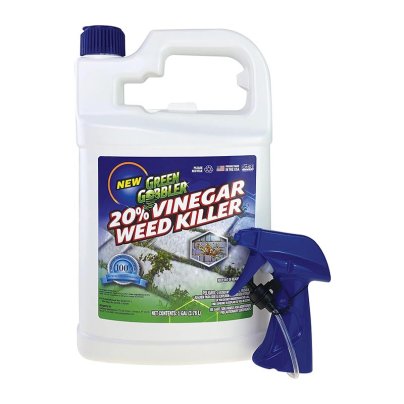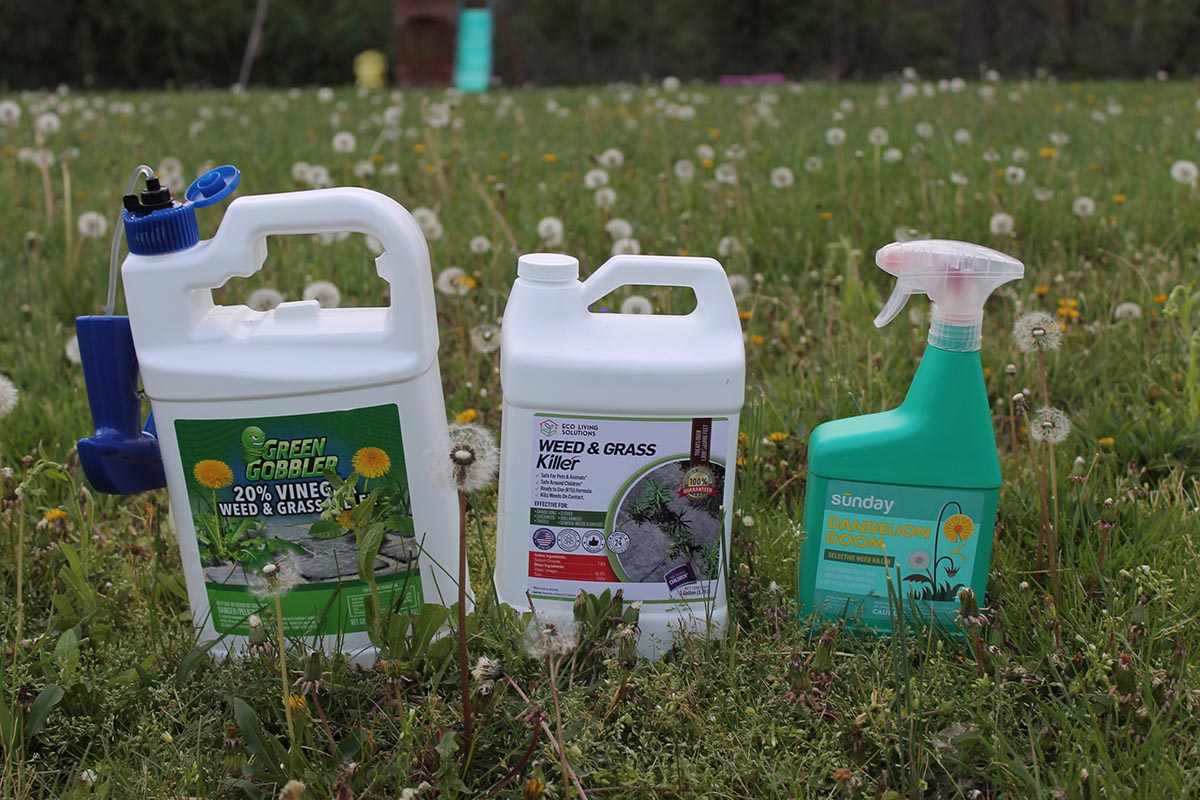
We may earn revenue from the products available on this page and participate in affiliate programs. Learn More ›
A hard-working dandelion killer is a must-have for gardeners looking to keep their lawns lush and green. A single dandelion weed can produce as many as 10,000 seeds that float on the gentlest breeze, so a yard with just a few dandelions can turn quickly into a lawn with hundreds. A practical course of action is to kill the weeds before they can propagate, but many people prefer not to risk using glyphosate (or can’t get it in their area). To find the best glyphosate-free options, we tested three popular dandelion killers in our own yard.
Our top pick is Green Gobbler 20% Vinegar Weed and Grass Killer. Its corn-derived formula killed dandelions and other stubborn weeds within a couple of days. We tested two other products and hand-selected an additional four that meet a variety of needs. Whether you need to kill dandelions without harming the surrounding grass, eliminate all types of weeds and grass, or stop dandelions before they start growing, one of these will do the trick.
Ahead, learn what to look for when shopping for the best dandelion killer for lawn care needs (the most toxic is not necessarily the best choice) and find out why lawn lovers prize the following herbicides for eradicating dandelion problems.

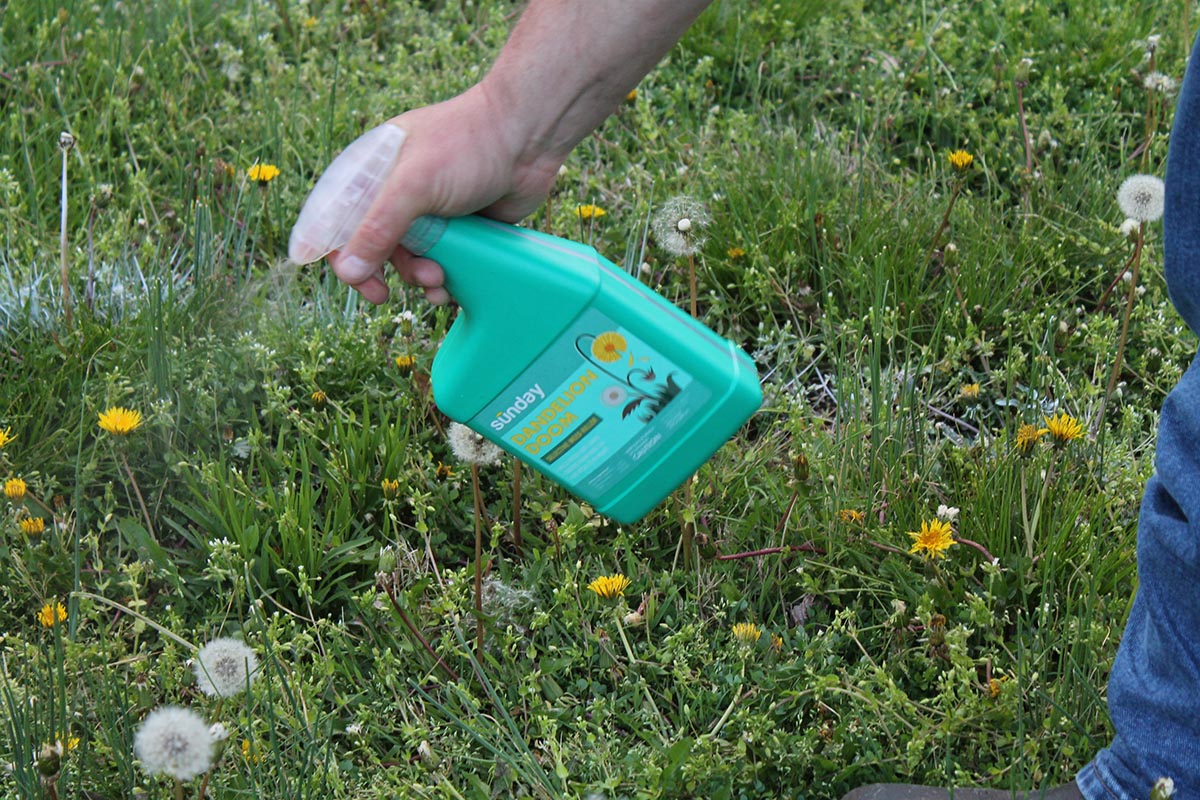

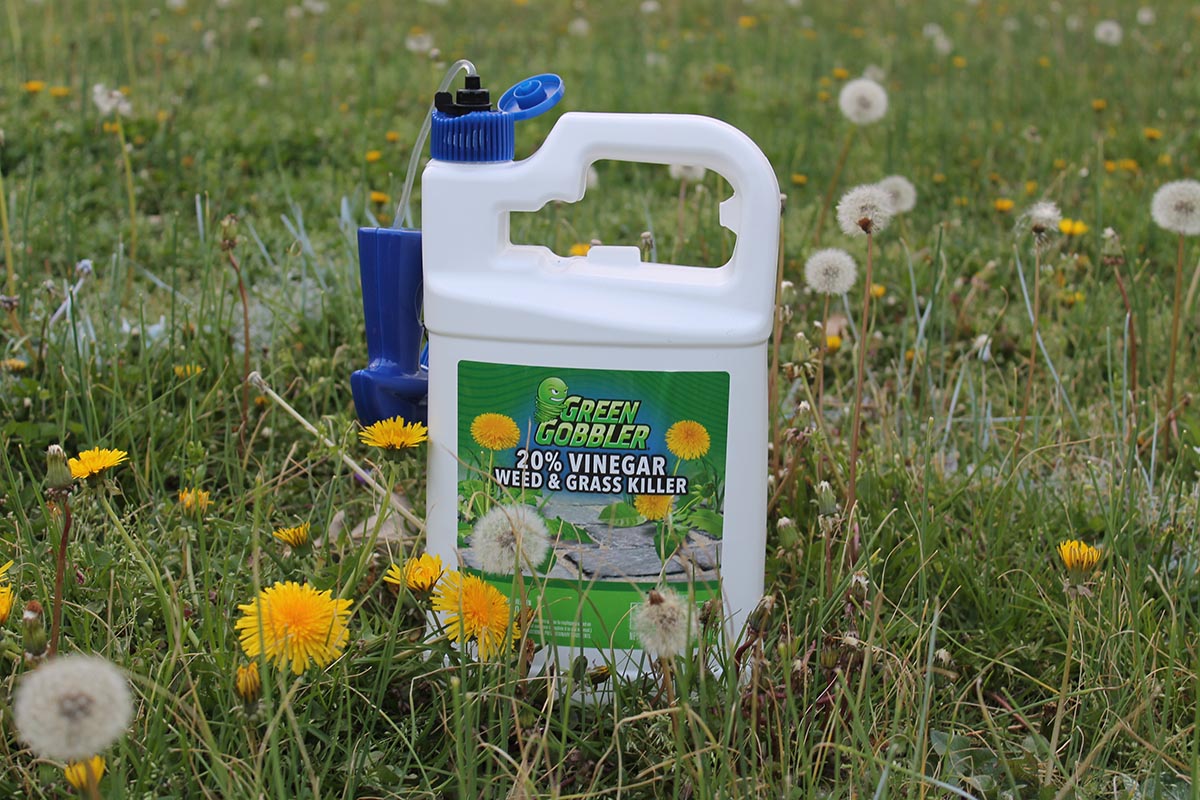
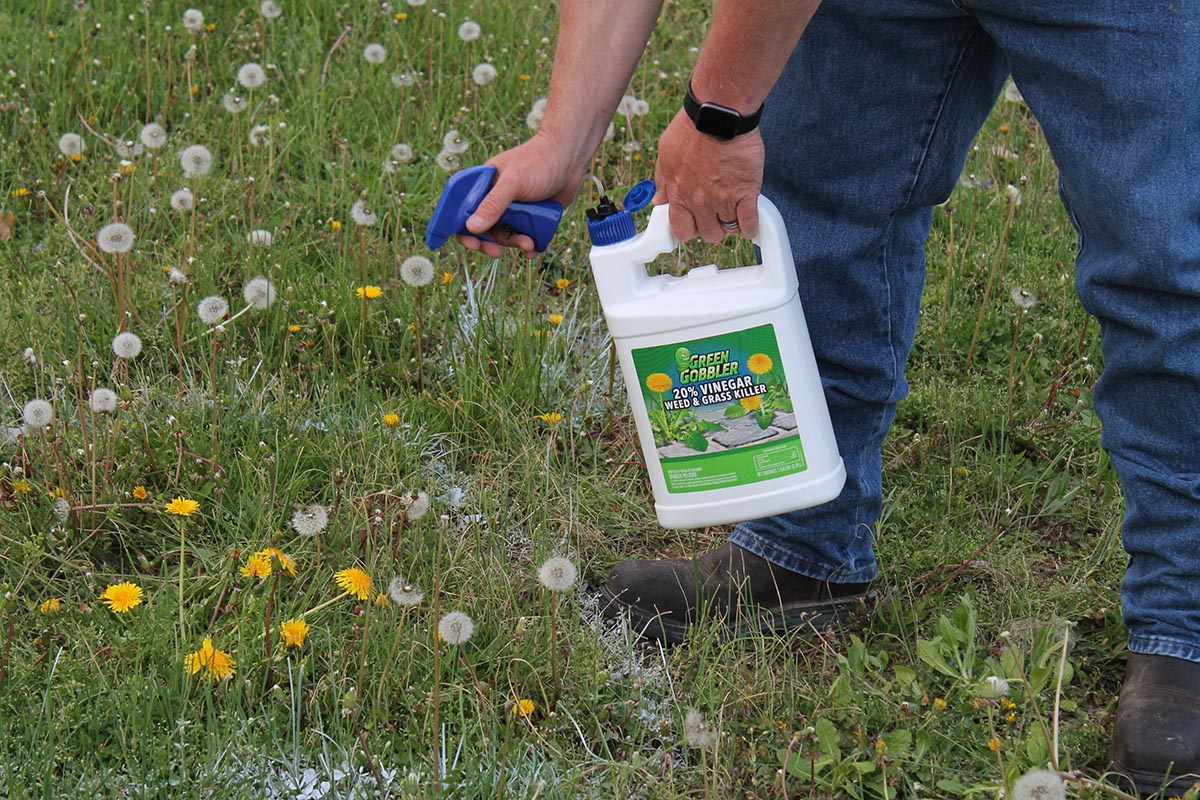
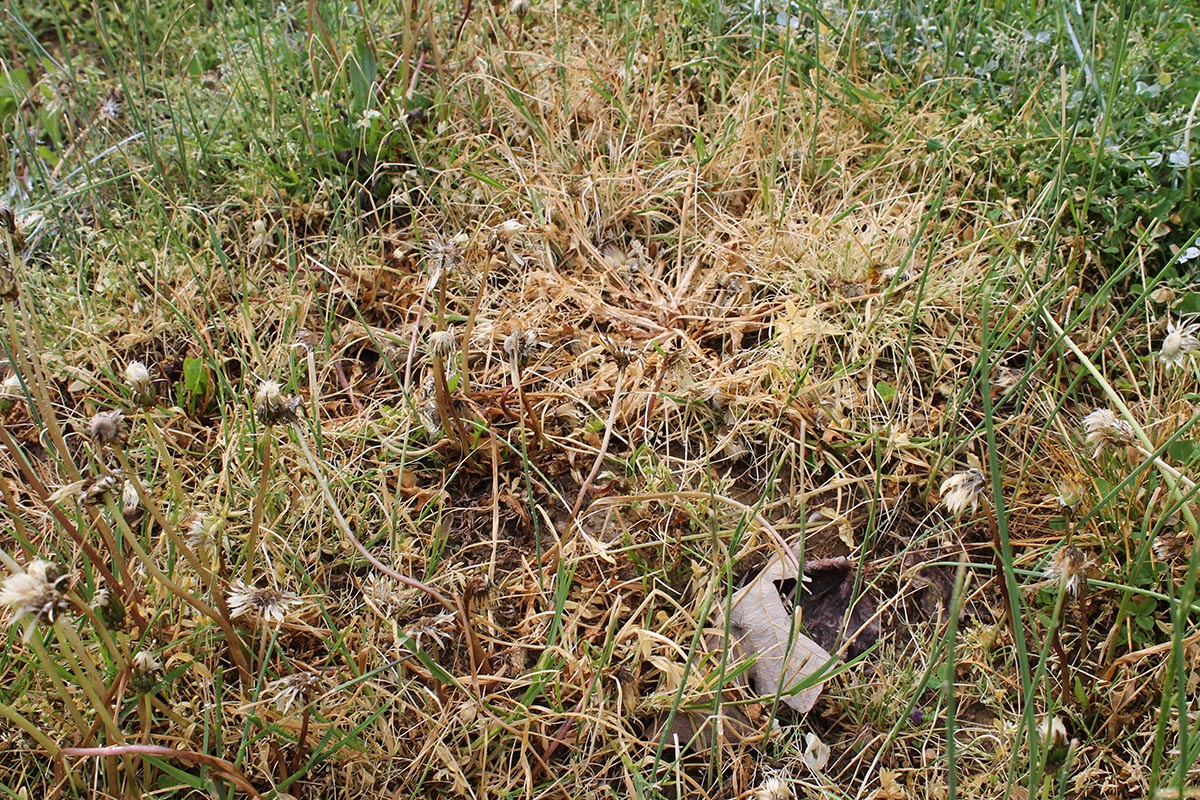
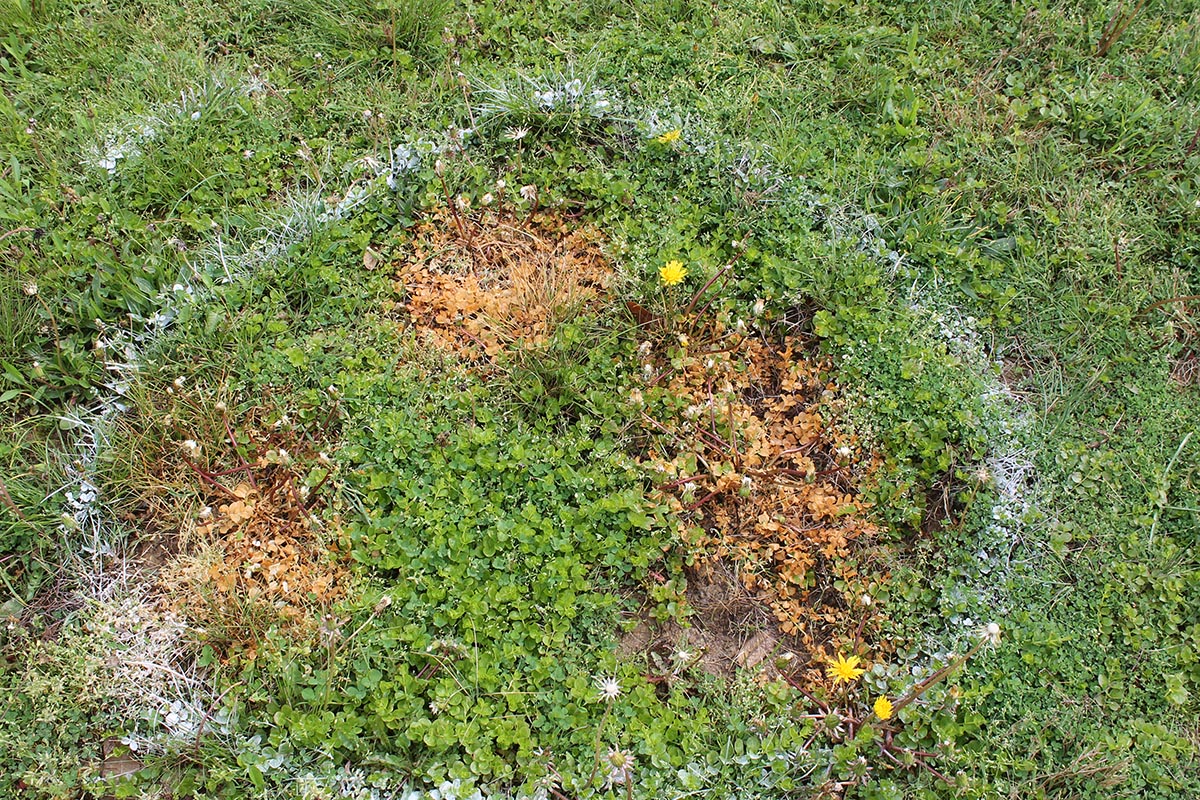
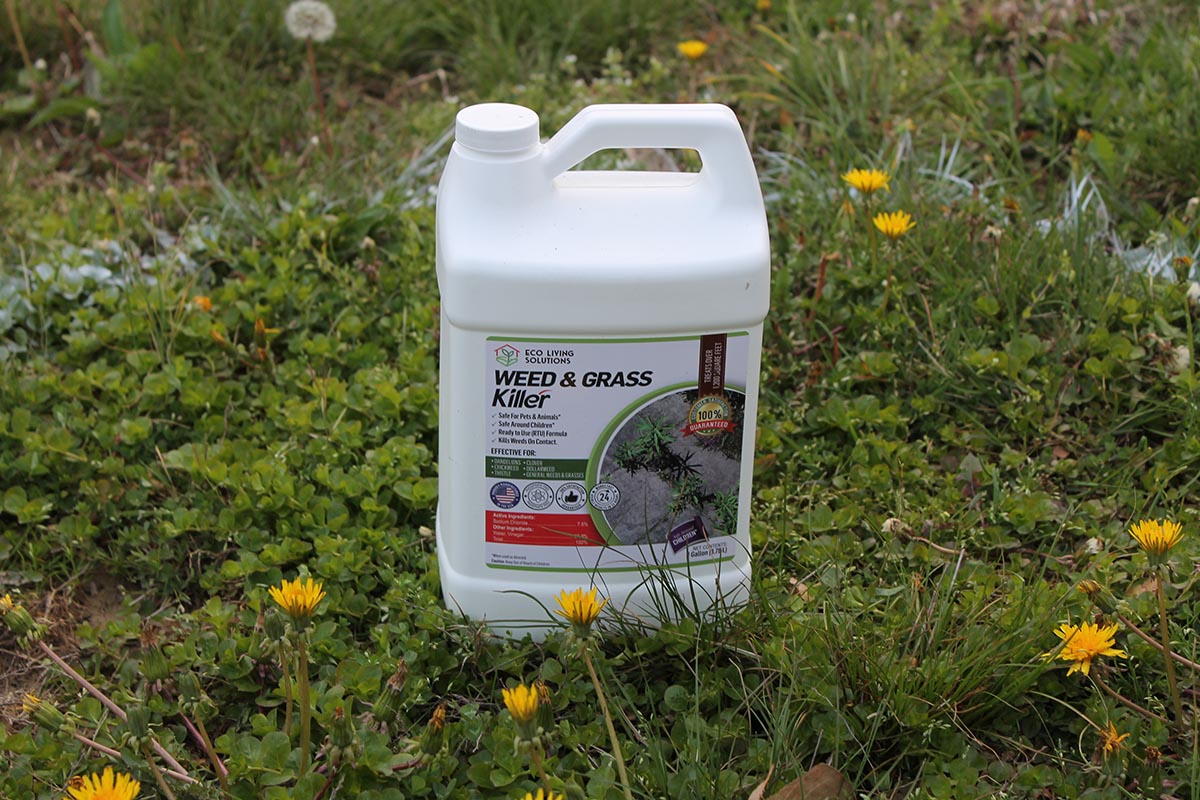
Before Buying Dandelion Killer
Preventing and removing weeds that mar the look of a lush lawn can feel like a never-ending endeavor, but applying a chemical herbicide or dandelion killer that kills the weeds isn’t the only option. In some scenarios, it may be the least desirable option.
Applying an herbicide to kill dandelions may not be necessary with good lawn maintenance practices, including regular watering to keep the turfgrass thick and healthy, which helps keep weed seeds from getting a foothold. Mowing before a dandelion flower can go to seed will also help.
With dandelions, it really is a matter of an ounce of prevention being worth a pound of cure. A single bright yellow dandelion one year can result in dozens more the next year. Simply pulling the weed before it has a chance to go to seed is another step toward keeping the lawn dandelion-free.
Also, consider that dandelions are early bloomers and are often a primary source of pollen for honey bees early in the summer when other plants are not yet blooming. For that reason, we strongly suggest using a dandelion killer that won’t harm honeybees and other pollinators. Be sure to check out our How to DIY Your Own Dandelion Killer section (below), which describes how to mix up a batch of dandelion-eradicating natural herbicide in the kitchen that will stop dandelions (and other weeds) in their tracks.
Best Overall
Green Gobbler 20% Vinegar Weed and Grass Killer
What We Like
- Starts working within hours of application
- Kills dandelions and most other undesirable weeds
- Safe for sidewalks, driveways, flower beds, and more
What We Don’t Like
- The included sprayer is awkward to use
- Nonselective; may kill nearby plants and grass
Specs
- Application type Spray
- Size 1 Gallon
- Selective or nonselective Non-selective
Our Ratings
| Effectiveness | 5/5 | Application | 4/5 | Value | 5/5 |
It might be hard to believe that a non-toxic weed killer can match the power of its chemical-laden counterparts, but Green Gobbler is here to prove that it can. Made of 20% vinegar derived from corn, this liquid concentrate kills nearly every plant it comes into contact with, including dandelions.
We tested the Green Gobbler weed killer on three different areas to gauge its effectiveness: on our gravel driveway, in an old garden overrun with dandelions and clover, and in our front lawn, which contains Kentucky Bluegrass and dandelions. Wherever we applied it, the results were consistent. Within a couple of hours, the plants we sprayed started to wilt. After 24 hours, some brown patches appeared, and within 48 hours, all affected plants had died.
While Green Gobbler effectively kills dandelions, it’s important to remember that it’s a nonselective formula. It shrivels almost any plant it touches, so it’s important to keep it away from desirable plants. Our only complaint is the sprayer. The one-gallon bottle comes with a sprayer attached to a short hose, so the user has to carry the heavy bottle around while applying it. In the future, we’ll add the formula to a pump sprayer for easier use.
What our tester says: “Green Gobbler is the best weed killer spray I’ve tried that doesn’t contain glyphosate. Its strong vinegar-based formula killed every weed I sprayed it on. I saw wilting within a few hours, and by the second day, all weeds were shriveled and brown.”—Katie Barton, Product Reviews tester and writer
Get the Green Gobbler dandelion killer at Amazon.
More Dandelion Killers Worth Your Money
Depending on your needs, a different dandelion weed killer might be a better fit. For those who want to kill dandelions but not grass, we recommend Sunday’s Dandelion Doom, which is a selective product that only kills broadleaf weeds. We used it to spot-treat dandelions in our backyard and were able to eradicate these weeds without harming the grass on our lawn.
We also tested Eco Garden Pro Organic Vinegar Weed Killer, and while it didn’t work as quickly as our top pick, it still killed dandelions and most other plants it came into contact with. This pet-safe dandelion killer is also safe for kids, bees, fish, and livestock, which we appreciate.
The other three products on our list were hand-selected by our team for their ingredients and impressive user reviews. Any of them could be great additions to the fight against dandelions.
- Sunday Dandelion Doom Broadleaf Herbicide, available at Lowe’s.
- Eco Garden Pro Organic Vinegar Weed Killer, available at Amazon or Walmart.
- Espoma Organic Weed Preventer Lawn Food, available at Ace Hardware.
- Natural Armor All-Natural Weed and Grass Killer, available at Amazon or Lowe’s.
- BioSafe Concentrated Nonselective Weed & Grass Killer, available at Amazon.
Or, DIY Your Own Dandelion Killer
Buying a commercial weed-killing product isn’t always necessary to get rid of dandelions. You can make a weed killer at home with a few affordable products that are often already on hand in the pantry.
Gardeners can follow this simple recipe to make their own solution. Clearly label and store any leftover solution in a cool, dark spot, such as a basement or under a sink. It should remain viable for up to 5 years.
Pour 1 cup of white vinegar into a clean plastic bucket or pail. Stir in 1 cup of table salt and 1 tablespoon of liquid dish soap. Mix until the salt dissolves. Add a gallon of water and stir to combine. That’s it! Pour the ready-to-use solution into a trigger spray bottle or a pump sprayer. Apply directly to dandelions and other unwanted weeds, but don’t let overspray get on grass or desirable plants, as it could kill them, too.
How We Chose and Tested the Best Dandelion Killers
| Testing Stats | |
|---|---|
| Products tested | 3 |
| Time spent testing | 1 week |
| Tests performed | 3 |
| Price range | $10 to $35 |
The dandelion treatment products we chose are all effective, but they’re not the most toxic on the market. We extensively researched more than three dozen different herbicides when selecting the finalists on this lineup. Not only did the products have to be effective, but they also had to be environmentally responsible. We then narrowed down our list and chose three products to test, along with three additional untested products to cater to a wide range of needs and price points.
We tested each of three dandelion killers on our lawn, gravel driveway, and in an old garden area overrun with clover and dandelions. We wanted to see how each of the herbicides would respond in different test areas, and whether they would kill all types of lawn weeds and grass they came into contact with, or only dandelions. All of our test products worked as advertised. The selective dandelion spray we tested only killed dandelions and other broadleaf weeds. The two nonselective products we tested wiped out all the sprayed plants.
Our test results were recorded in a standardized rubric, where we rated each product based on its effectiveness, ease of application, and value. Scores were tallied at the end of testing to determine our winner.
| Product | Effectiveness | Application | Value |
| Eco Living Solutions Organic Vinegar Weed Killer | 4/5 | 4/5 | 4/5 |
| Sunday Dandelion Doom Broadleaf Herbicide | 4/5 | 4.5/5 | 4.3/5 |
| Green Gobbler 20% Vinegar Weed and Grass Killer | 5/5 | 4/5 | 5/5 |
Jump to Our Top Picks
What to Consider When Choosing a Dandelion Killer
Dandelions are categorized as broadleaf weeds because of their wide, flat leaves that spread out along the ground in the shape of a dinner plate. Unlike many weeds with shallow root systems, dandelions develop long taproots that extend as deep as 2 feet or more into the ground, making them extremely difficult to pull out. Successfully getting rid of dandelions usually requires applying an herbicide.
Ingredients
Chemical herbicides have been a point of contention and debate for years. Although they have several advantages, they also have drawbacks.
Alternatively, organic herbicides contain only natural ingredients. They won’t leach toxic chemicals into the environment, but typically, they’re less potent than their synthetic chemical cousins. Those worried about furry friends or young children running through the yard after application should be sure to opt for a pet-safe weed killer, which most often falls into the organic herbicide category.
Eco-safe dandelion-killer products may contain one or more of the following ingredients to kill weeds naturally:
- Salt: Very similar to table salt but without iodine.
- Vinegar: May be concentrated to as much as six times stronger than household vinegar to kill weeds, creating a potent yet natural dandelion killer.
- Essential oils: Common essential oils include clove, cinnamon, and wintergreen.
- Soaps: Dish soap and natural detergents or fatty soap acids.
- Plant byproducts: Corn gluten or cornstarch containing proteins that stop weed seeds from sprouting.
Selective vs. Nonselective
Some herbicides are “nonselective,” which means they will kill virtually any vegetation they come into contact with. Other herbicides kill only one or a few types of plants and are called selective herbicides because they won’t harm other types of plants.
Weed-and-feed-type products are selective herbicides because they kill broadleaf weeds such as dandelions but won’t harm turfgrass. Selective herbicides work similarly to pulling up a single weed by hand. A nonselective herbicide is more like running a string trimmer.
If an herbicide negatively affects soil health, the product states how much time should elapse before planting in the treated spot, ranging from a few days after treatment to a year or longer. With the exception of one selective herbicide spray and one pre-emergent product that prevents dandelion seeds from sprouting, the products suggested in this guide are nonselective and should be applied to weeds only.
Application Method
Dandelion-killing products are available in different formats, each suited to specific types of infestations and personal preferences.
- Spray bottle: Among the simplest forms of herbicides for killing dandelions, spray herbicides come in a handy spray bottle for direct application to the offending weeds.
- Liquid concentrate: For yards with many dandelions, it may be easier and more cost-effective to purchase a concentrated liquid to apply using a pump-type sprayer.
- Powder: Powdered herbicides can be used in two ways: dusting with a duster or dissolving in water and applying with a sprayer.
- Granules: This herbicide requires a broadcast spreader or drop spreader. Depending on the product, the granules may kill existing weeds or act as a pre-emergent, preventing new weed seeds from sprouting.
Application Safety Tips
The key to using any type of dandelion killer for lawns is to plan ahead and reduce human and animal exposure. Though chemical herbicides present the most risk to humans, pets, and the environment, highly concentrated natural dandelion herbicides can irritate skin and kill desirable plants if not applied with care. Gardeners will want to use the following safety tips to help ensure the safe use of the product for the environment and all involved.
- Read and follow label instructions: This can’t be emphasized strongly enough. Though most quality products have instructions for use, the labels on chemical-based herbicides are federally regulated and bear the phrase: “It is a violation of federal law to use this product in a manner inconsistent with its labeling.”
- Wear eye protection: In most cases, a pair of sunglasses will suffice for eye protection, but if it’s breezy, opt for goggles with side protection.
- Protect your skin: Wear long sleeves and long pants to keep the product from coming into contact with bare skin.
- Wait for calm: Winds more than 8 miles per hour are too strong to control herbicide spray.
- Wash afterward: After applying the herbicide, wash hands and any other exposed skin. Change into clean clothes after application.
- Walk backward: Rather than walking forward over a newly sprayed lawn, which virtually guarantees getting the herbicide on clothing and shoes, walk backward to reduce the risk of contact with the product.
- Stay off: Different products advise users to keep pets, kids, and adults off the lawn until the herbicide no longer poses a health risk, which could be a couple of hours or a few days in the case of toxic herbicides. Natural herbicide products typically pose a risk of skin irritation only while they’re wet. When the solution dries, it’s safe to let the kids and pets out to play.
- Be patient: It’s frustrating to spray dandelions and then see them looking healthy the next day, but many herbicides take a few days to work. Depending on the product, it may take up to 2 weeks.
FAQs
Broadleaf herbicides can help keep a lawn free from dandelions, but there are many aspects of dandelion removal products to consider. Still want more information about whether products are safe for yards, humans, pets, and the environment? Read on. Below are answers to some of the most frequently asked questions about the best dandelion killers and how to get rid of dandelions in the lawn.
You don’t have to! Dandelions won’t harm the soil, and their deep roots can help prevent erosion on sloped areas. However, a few dandelions this summer can turn into hundreds next summer, detracting from the look of a lush, green lawn. The best way to keep them out of a lawn is to remove them when they first appear by pulling them, using a natural herbicide, or burning them with a weed torch.
It depends on the product. Natural and organic weed killers are safe for the environment, but while they’re wet, they may pose health risks to pets and humans. Chemical herbicides also may pose health risks during application and until the chemicals are absorbed by the soil.
Many wonder how to get rid of dandelions without harming other plants and foliage around their garden or home. The best method is to treat only the dandelions with a weed killer and take care not to get the solution on the surrounding grass. Alternatively, you can use a selective weed killer safe for grass.
